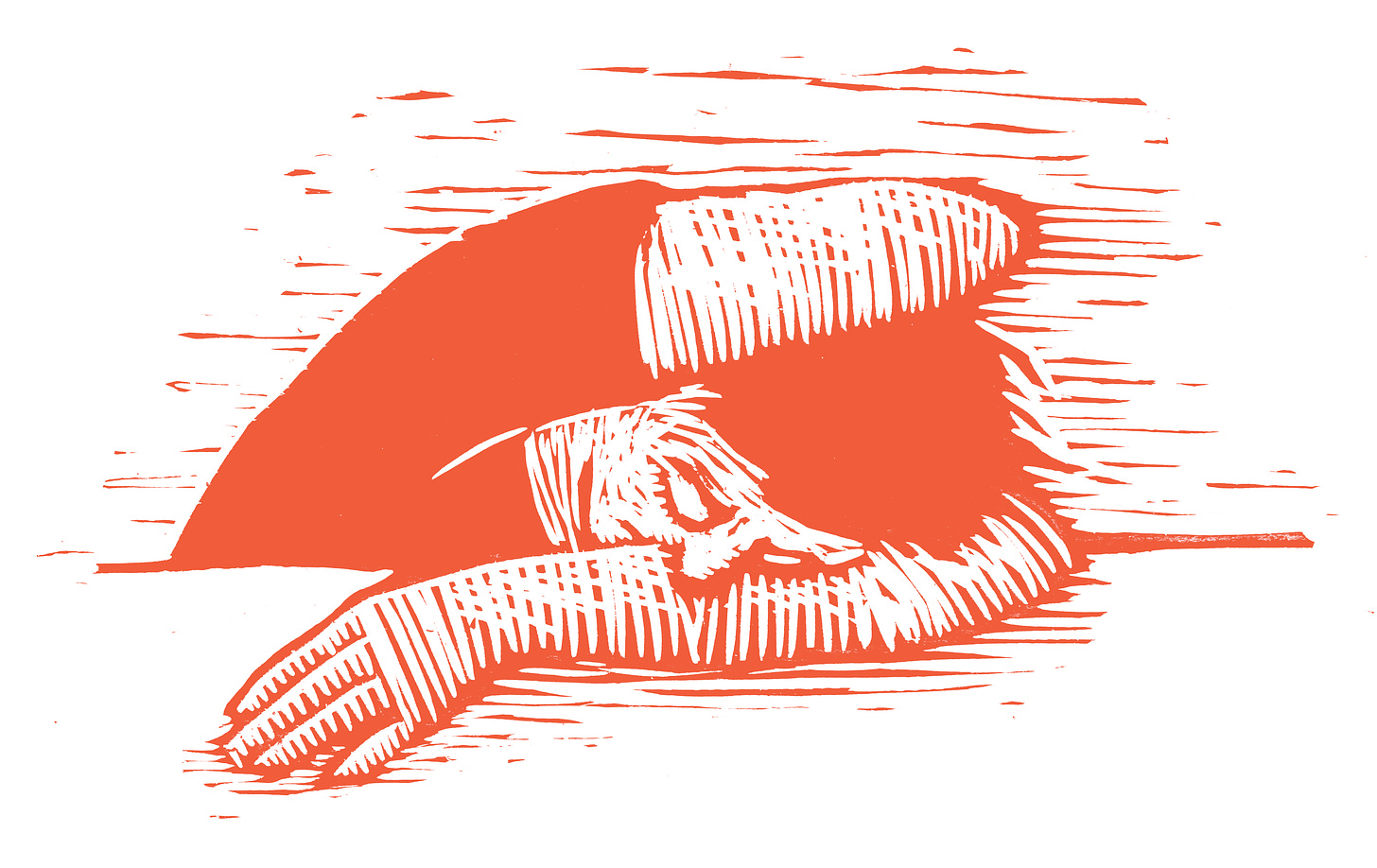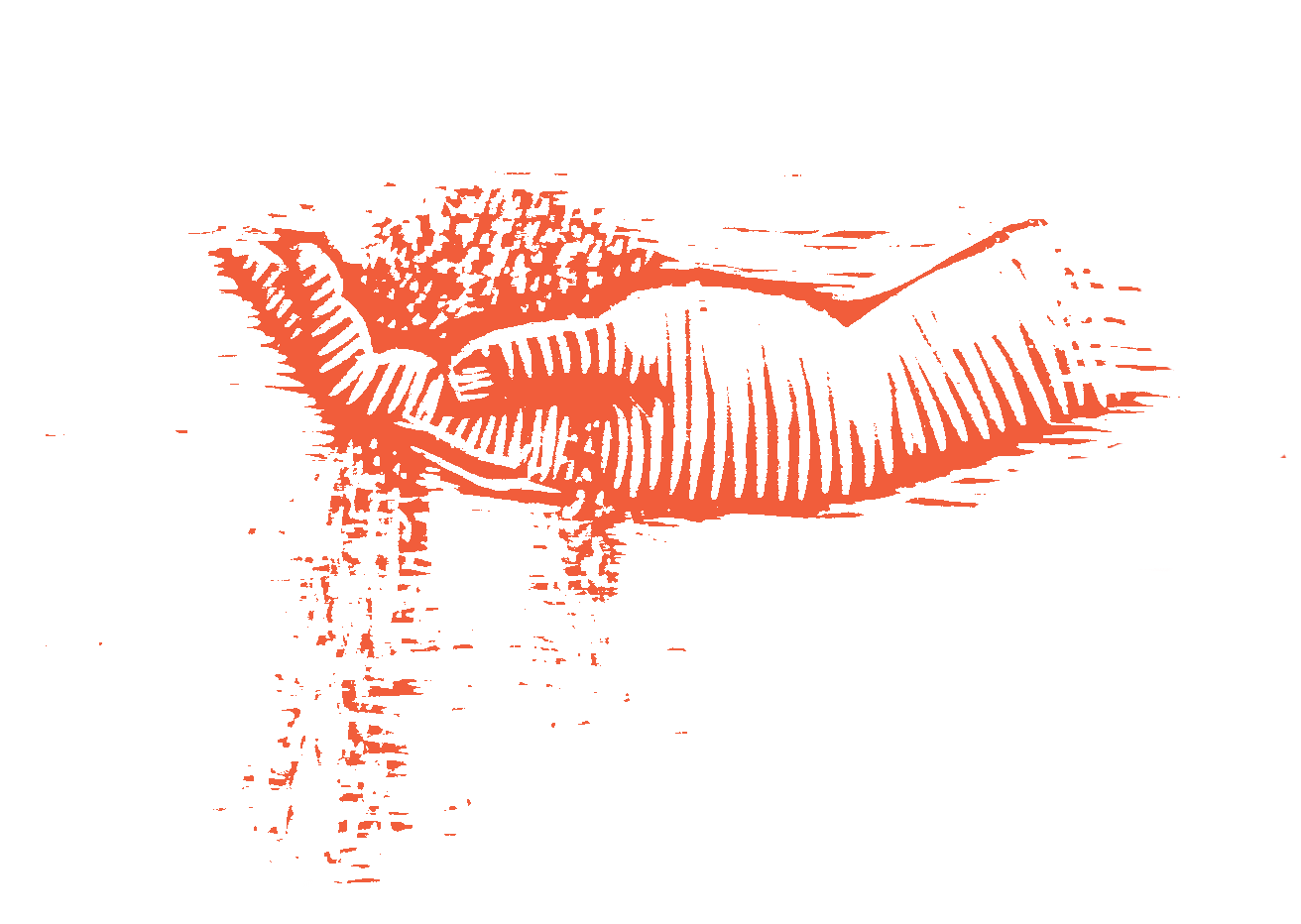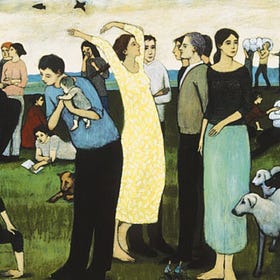“The art of losing isn’t hard to master.”—Elizabeth Bishop
Mormon is a terrifying book. It is a book about time, about the costs of time, and about what happens when we run out of time.
Mormon is a book about a man who lives through the end of the world. He loses everything and everyone he loves. His world collapses around him—socially, politically, economically, ecologically, religiously. He’s forced to watch as his people’s cities are destroyed, as their lands are burned, as women and children are sacrificed to idols, and as hundreds of thousands of corpses pile up. Mormon, with his eyes wide open, “sees all life and stuff about him involved in a huge ceaseless combustion, a literal and apparent process of oxidation which is turning some things slowly, some rapidly, but all things surely to ashes.”
What can we learn from Mormon’s experience?
I read Mormon’s book as a beginner’s guide to the end of the world.
I treat him as a case study in apocalyptic discipleship.
In relation to Mormon’s book, my basic question is just this: what does Christian discipleship look like when you are not just waiting for the end of the world but actually living through it?
Imagine, on the one hand, a certain kind of religion. Imagine a religion that required you to lose your life to save it (cf. Matthew 10:39). Imagine a religion whose introductory ritual required you to symbolically die, be buried, and then rise from the grave, committed now to living what remained of your life as something that belonged not to you but to God—bearing his name, filled with his Spirit, acting as his agent (cf. Romans 6:3–7). Imagine a religion that might, at any time, ask you, as Jesus did the rich young man, to “sell all that thou hast, and distribute unto the poor” (Luke 18:22). Imagine a religion premised on the necessity of sacrificing all things, a religion that claimed up front that any “religion that does not require the sacrifice of all things, never has power sufficient to produce the faith necessary unto life and salvation” (Lectures on Faith, 6:7). Or imagine, finally, a religion that explicitly required you to give everything back to God by way of consecration—all of your time, all of your talents, all of your possessions.
Can you imagine this sort of religion?
Can you imagine a religion that required the sacrifice of all things?
Now imagine, on the other hand, a certain kind of world. Imagine a world structured by time and pinned to its relentless flow. Imagine a world where everything that arises will also pass away, a world where, as Joseph Smith claimed, “as the Lord liveth, if it had a beginning, it will have an end.” Imagine a world where possessions decay, buildings crumble, triumphs fade, governments collapse, continents drift, and mass extinctions happen again and again.
Imagine a world where children grow up and leave home, where people get sick and grow old, where everyone dies. Imagine a world where the people you love—for as long as they live, for better or worse—are constantly changing.
Imagine this kind of marriage, this kind of family, this kind of home. This isn’t hard to do. My grandparents are dead. My mother is aging. The young man my wife married is gone forever. Our daughter is already grown and married and the five-year-old girl I held in my lap is never coming back. The sixteen-year-old girl I took to the movies is never coming back. Does this perpetual passing away hurt? Shouldn’t it? Resurrection doesn’t solve this problem. Immortality doesn’t solve this problem. Resurrection doesn’t freeze the world in place, trapping us in a block of ice-cold perfection. Resurrection is the promise that, in Christ, life can continue to pass, not that it will finally stop passing.
Imagine, then, a world where you are guaranteed to lose everything and everyone. Imagine a world where it is always possible to care for things but never possible to keep them.
Now, to press home the urgent, contemporary reality of such a world—and, perhaps, the urgent contemporary relevance of the Book of Mormon—take what we’ve imagined thus far and push it a step farther.
Imagine that these are actually the latter days. Imagine that the world itself is going to end, that “the earth shall be rolled together as a scroll, and the elements shall melt with fervent heat” (Mormon 9:2). Imagine a world that could end tomorrow in nuclear winter, in a cloudburst of ballistic missiles and blast radii and poisonous fallout. Or imagine one single bomb that, all by itself, would be powerful enough to ruin the world and render it uninhabitable. Imagine that bomb going off instantaneously. Now imagine that bomb’s detonation requiring a five-minute countdown, a twenty-four-hour countdown, a monthlong countdown, a yearlong countdown. Imagine, even, a world-ending bomb with a fuse the length of an average human life—when the baby is born, the fuse is lit—a fuse long enough for there “to be great doubtings and disputations among the people, notwithstanding so many signs had been given” (3 Nephi 8:4).
Regardless of how the world ends, we can rest assured that it is going to end. And regardless of how we lose everything and everyone we love, we will lose them—if only by the most quiet, familiar, and local means. Slowly and singly or swiftly and collectively, death will claim every one of us.
Time will dispossess us all.
My thesis is that a life of Christian discipleship sits squarely at the crossroads of just this sort of religion and just this sort of world. Discipleship happens at the intersection of the requirement that we sacrifice all things and the inevitability of losing all things. As a result, to imagine a life of Christian discipleship you need only imagine a religion that requires you to sacrifice everything in a world that will, regardless, exact the loss of everything.
Imagine, then, treading the path of discipleship and preemptively willing—as an act of love and sacrifice—your own already inevitable loss of all things. Imagine the practice of your religion as the business of willing the end of the world.
What would it look like to willingly give up your life and loved ones and world? What would it look like to give them up and then keep loving them and living with them and caring for them? What would it look like to sacrifice “all things” intentionally rather than just inevitably? How would it change your relationship to life? How would it change your relationship to property? How would it change your relationship to your parents, your spouse, your children? And how, in particular, would this sacrificial gesture utterly transform your relationship to time?
What would it look like to be a disciple of Christ as the world collapses around you?
What does discipleship look like at the end of the world?
It looks, I think, like Mormon.
Adam Miller is a professor of philosophy at Collin College in McKinney, Texas and serves as the director of the Latter-day Saint Theology Seminar.
Art by Brian Kershisnik.
Audio produced by BYUradio. Subscribe to listen at Apple Podcasts, Spotify, or Youtube.
These essays appear in Theological Insights from the Book of Mormon, a Wayfare series that pairs the 2024 Come, Follow Me curriculum with authors of the Maxwell Institute’s Brief Theological Introductions to the Book of Mormon series.
UPCOMING EVENTS
KEEP READING
Misreading Grace
Some translations of holy writ can have enormous, even calamitous impact on the development of religious ideas. A most famous example comes from Paul’s letter to the Romans, in which chapter five refers to the consequences of Adam’s transgression. “So death passed upon all men,
Humor and Perfection
When depicted on a show like Good Omens, heaven is the shiny smooth shell of perfection. Sterile. Corporate. All sheen without any fun, without aesthetic pleasure. Always smug. Often scolding.













Adam, Thanks for the piece. I have pondered for years why the City of Enoch and the post 3 Nephi culture have not long narrative stories (like much of scripture) of wonderful sacrifices and joyfulness and yes, play, play, play. Instead we have zero really in the Bible and a few verses in our Book of Books. But we do have many pages of misery displayed over centuries and then, gulp, a double genocide to ponder. Think about Mormon and Moroni having watched the likely violent deaths of their spouses and children. (They can't stomach telling us details.)
The story in 3 Nephi is analogous to the Second Coming. And then--can we even grasp it?--it continues as an analogy to the War-in-Heaven. God the Son had dwelled among the Nephites for a few weeks at least, and God the Spirit for many, many years thereafter. It was as Mormon said, heaven on earth . . . for a while. Let us try to grasp how profound the freedom of uncreated intelligence goes. Let us always see that trust, hope and love are a dynamic complex--never final. It is as if this whole phony mortal life is preparation for more temptations ahead in everlasting lives in celestial worlds to come and go and come and go . . . forever. Intelligences exist in the freedom to negotiate purposes together, and to decide whether or not to keep the trust, live with hope, and act in love. And love! It is particularly problematic--for it is more or less, with you then not the other, offensive, always tempting envy. Yet so enjoyable to be worth these trade-offs. Intelligences are glorious because they choose the light out of their own darkness. No God is good by necessity. There are all sort of intelligences. The Book of Mormon starts with the end in mind: Some (many?) who go to the Tree and taste the divine love fruit that is more delicious than anything else--toss it half-eaten into the filthy river on the way to the great and spacious building . . . or for some, to other places . . . for no reason other than to exercise their freedom to do it!
But as Scooge asked the ghost of Christmas future, 'why show me these things if they cannot be altered by us now?' So yes, thanks to Mormon and Moroni warning and pointing toward Christlike love, we gentiles still have a choice to alter our future on Earth . . . and beyond. The little tribe of LDS can be modern Enochites that pour out from their temple fortresses to collaborate with many millions beyond of good-hearted souls us to build a massive Zion on this planet and in the Spirit World. We don't have the scriptural genocides as examples of what's coming for sure. Joseph Smith calculated to revolutionize the world with loving friendship--not just baptized LDSaints--and the narrative of that revolution--our Zion!--is ahead for us to freely create, not behind to be replicated. Thanks for prompting this little rant. I love your work. R